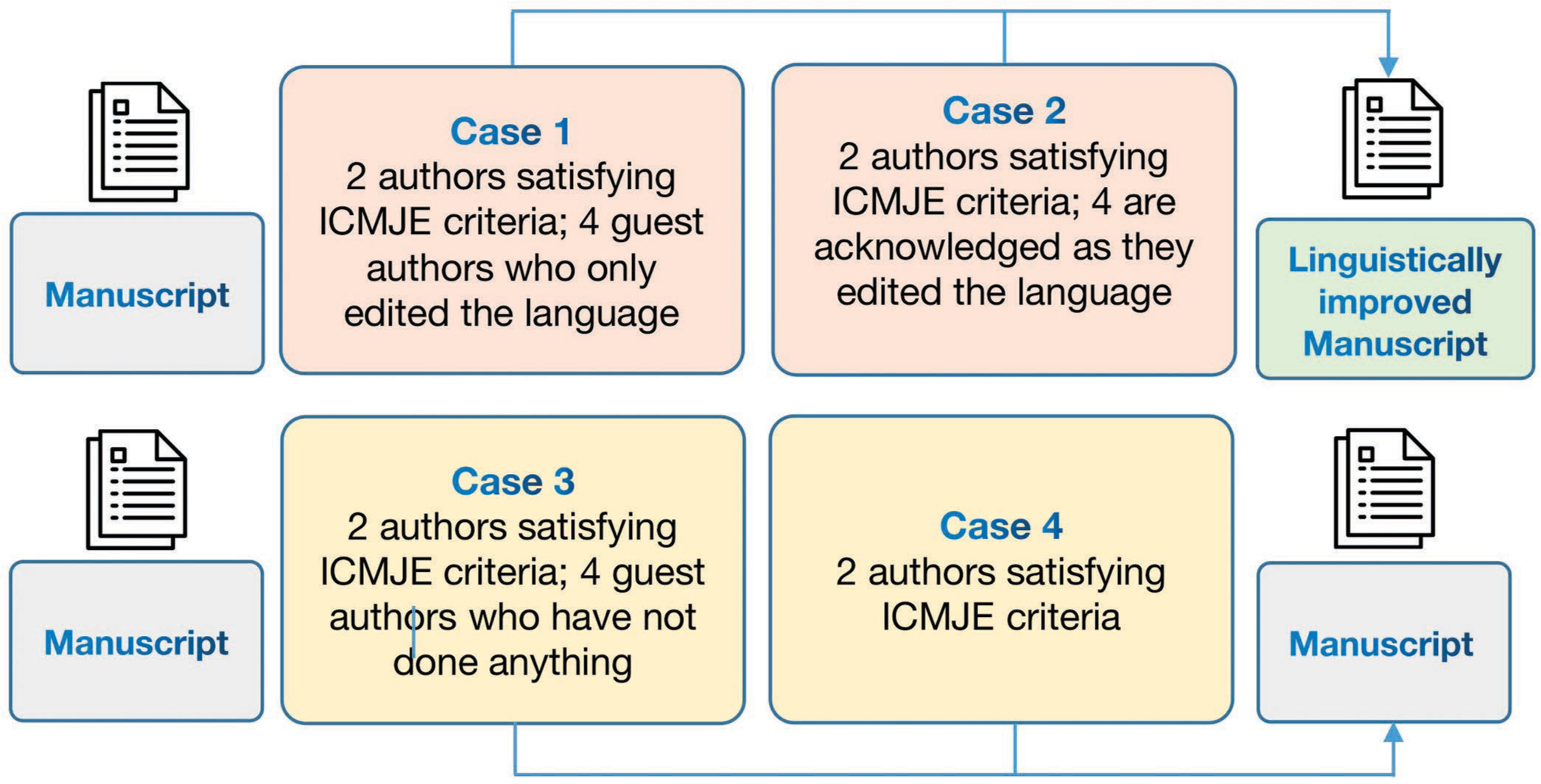Translate this page into:
Honorary authorship: Unethical; however, does it harm science?

*Corresponding author: Himel Mondal, Department of Physiology, All India Institute of Medical Sciences, Deoghar, Jharkhand, India. himelmkcg@gmail.com
-
Received: ,
Accepted: ,
How to cite this article: Mondal H, Mondal S. Honorary authorship: Unethical; however, does it harm science? CosmoDerma. 2024;4:99. doi: 10.25259/CSDM_103_2024
Dear Sir,
Perhaps the most common unethical practice in academia is the honorary authorship. Honorary authorship, also known as gift or guest authorship, refers to the inclusion of individuals as authors on scientific publications without substantial contribution to the research or manuscript.[1] These terms – “honorary,” “gift,” and “guest” are used interchangeably, as they are coming under the broad heading of offering authorship, who actually does not satisfy the criteria of authorship.
The majority of the journals follow the International Committee of Medical Journal Editors (ICMJEs) criteria. According to these criteria, a contributor of a research article will be an author if the contributor satisfies at least one attribute from each of the four criteria.[2] If anyone does not satisfy the ICMJE criteria, the inclusion of his/her name is a violation of publication ethics. Meursinge Reynders et al. reported that this violation is one of the most common violations in health science publications.[3] We agree that if millions of people do unethical practice that does not make the unethical practice ethical. Honorary authorship is unethical, although practiced rampantly. However, does it harm science? This question is rarely discussed in academia. Hence, we highlighted four case scenarios and then deduced the inference from the cases to answer the question.
Below are four scenarios in this context that would help to understand how honorary authorship can affect science [Figure 1].

- Case scenario of guest authorship. ICMJE: International committee of medical journal editors.
Scenario 1: A paper has two true authors (fulfilling ICMJE criteria) and four as honorary authors who only edited the language of the manuscript. Listing the later four authors is considered unethical.
Scenario 2: A paper has two true authors (fulfilling ICMJE criteria), and four are acknowledged contributors who only edited the language of the manuscript. Listing four contributors in the acknowledgment is ethical.
Scenario 3: A paper has six authors, with two as true authors (fulfilling ICMJE criteria) and four as honorary authors who did not contribute in any aspect. Listing the later four authors is considered unethical.
Scenario 4: A paper has two true authors (fulfilling ICMJE criteria).
For the sake of debate, the “publication ethics” is kept aside, and only the scientific content of the paper is taken into consideration. In scenarios 1 and 2, the scientific content would be the same (linguistically improved manuscript) despite the contributors listed in the acknowledgment section or as authors. Similarly, the scientific content (same manuscript) in scenarios 3 and 4 would also be the same despite the inclusion or exclusion of four authors who did not contribute to the paper.
From these four scenarios, one can conclude that the scientific content remains unaltered with the inclusion or exclusion of honorary authors. The topic of “honorary authorship” may continue to be discussed as an ethical dilemma in scientific publication; however, there is no harm to science![4]
Ethical approval
The Institutional Review Board approval is not required.
Declaration of patient consent
Patient’s consent was not required as there are no patients in this study.
Conflicts of interest
There are no conflicts of interest.
Use of artificial intelligence (AI)-assisted technology for manuscript preparation
The authors confirm that there was no use of artificial intelligence (AI)-assisted technology for assisting in the writing or editing of the manuscript and no images were manipulated using AI.
Financial support and sponsorship
Nil.
References
- Honorary authorship: Is there any chance to stop it? analysis of the literature and a personal opinion. Tomography. 2021;7:801-3.
- [CrossRef] [PubMed] [Google Scholar]
- Criteria to be an author of a manuscript: Time to revisit the ICMJE criteria and CRediT. J Anaesthesiol Clin Pharmacol. 2023;39:674-5.
- [CrossRef] [PubMed] [Google Scholar]
- Honorary authorship is highly prevalent in health sciences: Systematic review and meta-analysis of surveys. Sci Rep. 2024;14:4385.
- [CrossRef] [PubMed] [Google Scholar]
- Publication ethics: Role and responsibility of authors. Indian J Gastroenterol. 2021;40:65-71.
- [CrossRef] [PubMed] [Google Scholar]






